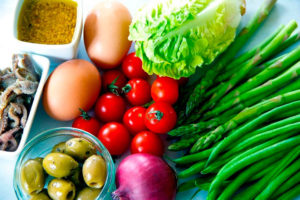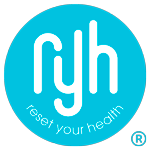Menopause and
Hormonal Symptoms
Help for the menopause and hormonal symptoms
During the menopause, it is important to ensure that you are eating a healthy diet. This can help to reduce symptoms and lowers your risk of long-term health consequences associated with hormonal changes.
A Mediterranean-style diet is recommended for hormonal issues and the menopause. Try to include the following foods in your diet:
-
Fruit and vegetables
-
Healthy mono-unsaturated fats such as olive oil
-
Oily fish such as salmon, sardines and mackerel
-
Wholegrains (like quinoa, buckwheat and millet ), pulses, beans, nuts and seeds
-
Moderate amounts of alcohol (equivalent to one standard 125ml glass of wine per day), although initially we suggest you avoid all alcohol.
What to eat and what to avoid
Saturated fats, red meats can be eaten in moderation, sugars and processed meats and foods should be limited.
Reducing your intake of these foods alongside increasing intake of:
- Fruit
- Vegetables
- Grains
may lead to benefits relating to breast cancer, coronary heart disease and diabetes.
You should avoid spicy foods and large amounts of caffeine and alcohol as these may worsen hot flushes.

How to reduce symptoms
To reduce your risk of osteoporosis, you should eat foods containing calcium and vitamin D. Try to eat three to four calcium-rich foods daily, including:
- Green, leafy vegetables
- Nuts and seeds
- Dried fruit
- Tinned fish with bones
- Vitamin D is found in oily fish, eggs and soymilk. Sunlight is also an important source of Vitamin D.
In the UK, a daily vitamin D supplement of 10 µg/day (400 IU/d) is recommended for all adults during Autumn and Winter months.
Phytoestrogens found in plant foods such as soy, linseed and pulses, may help reduce hormonal symptoms such as hot flushes and depression. Aim to eat two to three portions of calcium-fortified soy products like milk, yogurts, soya and linseed bread or edamame beans each day. Don’t worry if you don’t eat dairy, RYH also include non-dairy calcium food sources.
RYH offers you:
- 4 weeks of easy, affordable and varied meals, tailored to a range of dietary requirements, with vegetarian and vegan options, as well the option to avoid a range of allergens
- A lifestyle change – much more sustainable than fad diets – as well as detailed explanations so you understand the changes you’re making, increasing the likelihood of long-term success
- Long-term support: a welcoming and supportive RYH community to help you continue your journey, as well as plenty of advice for keeping your gut healthy after the 4 weeks
- The ability to sleep better, feel more energised, boost your immune system and overall wellbeing
